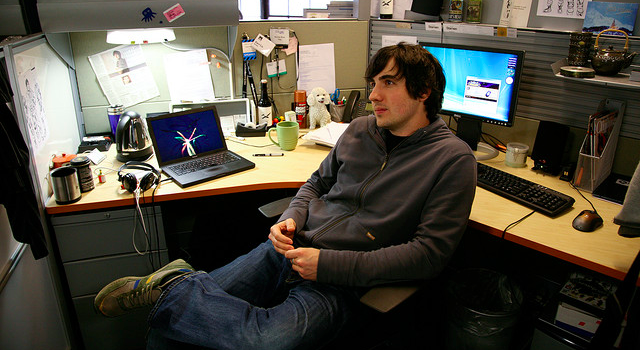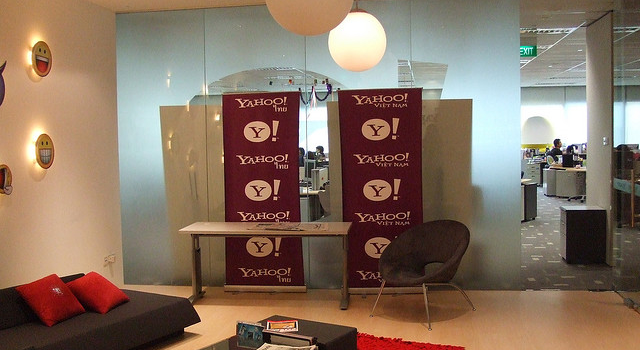Working to build a startup from the very beginning requires dedication and seemingly endless weeks of hard work. There are very few success stories revolving around a single entrepreneur, as most great innovations require teamwork. There are different associations between the size and focus of any team division. But it’s crucial to understand that each workspace is different with their own unique quirks.
In this article I want to discuss some of the key ideas behind teamwork in a startup environment. When first building your new idea the adventure can feel exciting and spontaneous. But without a steady plan you’ll eventually lose focus and derail off the tracks at some point. I’d like to break this mold by offering a few helpful tips for stabilizing any startup team.
Organizing Workflow
During the first few weeks at any startup there will be so much to accomplish. It feels like everybody is working in turbo drive to push out new e-mails, server changes, script updates, template bug fixes, etc.
This chaos will quickly grow out of control unless somebody takes the authority of organizing targeted actions. It’s best if 1-2 leading founders can help with long-term project management goals. Get everybody on the team together and discuss the most important objectives over the next few months. Which features are pertinent in determining the success of your startup?
Every small business should go through this stage during the early days of their growth. However if you have a team behind your ideas it’s much easier brainstorming on some more exotic topics. If the team is constantly running into pitfalls you may consider hosting these meetings once a month, or even more often if needed. This is perfect for keeping everybody working on the same page.
Open Delegated Tasks
A well-oiled startup will require some of the best talent you can find. Or even if they aren’t the best programmers or designers, your teammates should be motivated and willing to learn new talents along the way. Working at a startup can develop into the perfect opportunity for honing new skills in website design, development, and marketing.
Yourself or another project manager should be in charge of communicating with everybody on the team regarding their duties. Some people should be focusing on frontend web development, others on graphics and icons. You may also want to have people marketing to increase brand awareness. Make sure that everybody has a place working in their own niche.
It’s best if you can place teammates working on time-sensitive investments as the top priority. Make a small list of all the important things which need to get done, and schedule out some timeframes. Open communication offers trust and a level of respect which you can’t find at many larger tech companies.
Constructive Feedback
One huge benefit to working with a team is offering and gathering feedback. You can’t always count on your users to provide the most helpful suggestions. But you can always ask questions to your team of engineers and graphics designers.
These are the people working online each day and picking up small annoyances. Startups run into trouble when they grow too big for their own good and begin ignoring the most obvious criticisms. A familiar example is the recent sale of Digg.com to Betaworks after launching the horrendous v4 release. Smaller mistakes can snowball into big ones if ignored for too long, so try and keep an open mind about changing your opinion down the road.
Progressive Alterations
I will vouch for solid teamwork techniques even moreso when I am unable to work. There are plenty of days where you’ll be dealing with an emergency, running errands, stuck in appointments, or just feeling under the weather. These are the days you are happy to let the work fall back onto the team.
Over time you begin to realize and accept that your startup idea will continue growing with each passing week. New features are implemented quickly and traffic numbers will also draw attention. You want to construct a team that’s steady and willing to commit to building one exceptional product. This will of course require time, and thus progressive updates are the best solution for overall growth.
This method also leaves some free time for your team members to bounce around ideas before creating them. Perhaps your plans of 6 months ago are now outdated, and there are more critical issues to deal with. Having the stamina to rebound quickly is a major team asset, especially working in the realm of fast-paced Internet startups.
The Melting Pot
My favorite analogy is comparing a new startup team with a sweet melting pot of various ideas. You’re combining so many creative people together under one roof to build a single product, either for the web or desktop or mobile smartphones. This will sometimes lead to conflict. But understand that not all conflicts are bad if dealt with properly.
At times it can be favorable if you are open to new ideas and willing to let other people take charge for a while. Over time you’ll learn to trust each of your teammates with some larger-scale decisions. The melting pot theory can bring about new opinions and techniques which you had never even considered! This is what makes the concept so intriguing.
Education and learning is truly the greatest benefit you’ll receive from your friends and teammates. It’s impossible for one person to know everything, and this is why businesses can grow so quickly with a large group of dedicated people. This is also why a brand new startup can scale and reform new changes with tremendous speed.
Open yourself to these changes and they will appear much quicker. Even in a team of 3-4 people you can accomplish significant tasks by helping each other. The act of sharing knowledge and compelling ideas is how some of the best companies in our history have been started.
Final Thoughts
Internet startups are some of the more exciting businesses launching in the new century. Much of our past corporate structures have been molded around the physical world, and we’re just now entering a time where digital businesses are thriving in all sectors. Smaller startups can launch with 1 or 2 employees and scale very quickly.
I hope this article can offer some inspiration and ideas for working in a team setting. No great idea can be truly managed by one person. But you shouldn’t fall for hiring any ordinary team either. Pick your real battles and hold your teammates to the same high standards as your own quality of work. A successful team-centric business startup is all about reasonable compromise and commitment to the fullest extent.
Related Topics
Top




